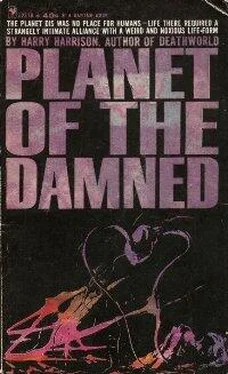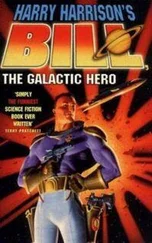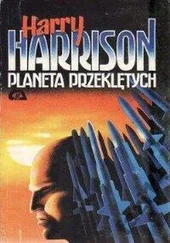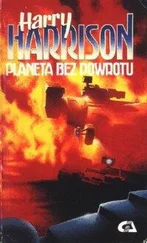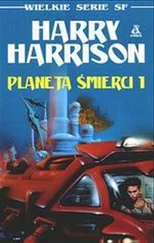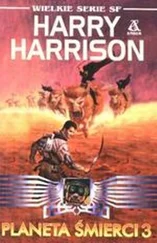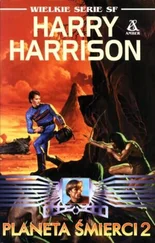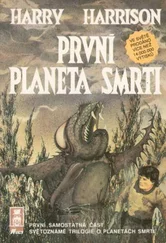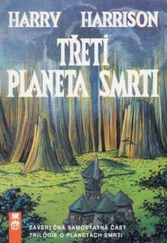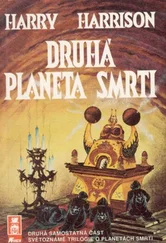She dropped her head onto her forearms and sobbed. “Leave me alone, can’t you! I’m tired and sick and fed up with this awful planet. Let them die. I don’t care! Your theory is false, useless. Admit that! And let me wash the filth from my hands…” Sobbing drowned out her words.
Brion stood over her and drew a shuddering breath. Was he wrong? He didn’t dare think about that. He had to go on. Looking down at the thinness of her bent back, with the tiny projections of her spine showing through the thin cloth, he felt an immense pity—a pity he couldn’t surrender to. This thin, helpless, frightened woman was his only resource. She had to work. He had to make her work.
Ihjel had done it—used projective empathy to impress his emotions upon Brion. Now Brion must do it with Lea. He had had some sessions in the art, but not nearly enough to make him proficient. Nevertheless he had to try.
Strength was what Lea needed. Aloud he said simply, “You can do it. You have the will and the strength to finish.” And silently his mind cried out the order to obey, to share his power now that hers was drained and finished.
Only when she lifted her face and he saw the dried tears did he realize that he had succeeded. “You will go on?” he asked quietly.
Lea merely nodded and rose to her feet. She shuffled like a sleepwalker jerked along by invisible strings. Her strength wasn’t her own, and the situation reminded him unhappily of that last event of the Twenties when he had experienced the same kind of draining activity. She wiped her hands roughly on her clothes and opened the microscope case.
“The slides are all broken,” she said.
This will do,” Brion told her, crashing his heel through the glass partition. Shards tinkled and crashed to the floor. He took some of the bigger pieces and broke them to rough squares that would fit under the clips on the stage. Lea accepted them without a word. Putting a drop of the magter’s blood on the slide, she bent over the eyepiece.
Her hands shook when she tried to adjust the focusing. Using low power, she examined the specimen, squinting through the angled tube. Once she turned the sub-stage mirror a bit to catch the light streaming in the window. Brion stood behind her, fists clenched, forcibly controlling his anxiety. “What do you see?” he finally blurted out.
“Phagocytes, platelets… leukocytes… everything seems normal.” Her voice was dull, exhausted, her eyes blinking with fatigue as she stared into the tube.
Anger at defeat burned through Brion. Even faced with failure, he refused to accept it. He reached over her shoulder and savagely twisted the turret of microscope until the longest lens was in position. “If you can’t see anything—try the high power! It’s there—I know it’s there! I’ll get you a tissue specimen.” He turned back to the disembowelled cadaver.
His back was turned and he did not see that sudden stiffening of her shoulders, or the sudden eagerness that seized her fingers as they adjusted the focus. But he did feel the wave of emotion that welled from her, impinging directly on his empathetic sense. “What is it?” he called to her, as if she had spoken aloud.
“Something… something here,” she said, “in this leukocyte. It’s not normal structure, but it’s familiar. I’ve seen something like it before, but I just can’t remember.” She turned away from the microscope and unthinkingly pressed her gory knuckles to her forehead. “I know I’ve seen it before.”
Brion squinted into the deserted microscope and made out a dim shape in the centre of the field. It stood out sharply when he focused—the white, jellyfish shape of a single-celled leukocyte. To his untrained eye there was nothing unusual about it. He couldn’t know what was strange, when he had no idea of what was normal.
“Do you see those spherical green shapes grouped together?” Lea asked. Before Brion could answer she gasped, “I remember now!” Her fatigue was forgotten in her excitement. “Icerya purchasi, that was the name, something like that. It’s a coccid, a little scale insect. It had those same shapes collected together within its individual cells.”
“What do they mean? What is the connection with Dis?”
“I don’t know,” she said; “it’s just that they look so similar. And I never saw anything like this in a human cell before. In the coccids, the green particles grow into a land of yeast that lives within the insect. Not a parasite, but a real symbiote…”
Her eyes opened wide as she caught the significance of her own words. A symbiote—and Dis was the world where symbiosis and parasitism had become more advanced and complex than on any other planet. Lea’s thoughts spun around this fact and chewed at the fringes of the logic. Brion could sense her concentration and absorption. He did nothing to break the mood. Her hands were clenched, her eyes staring unseeingly at the wall as her mind raced.
Brion and Ulv were quiet, watching her, waiting for her conclusions. The pieces were falling into shape at last.
Lea opened her clenched hands and smoothed them on her sodden skirt. She blinked and turned to Brion. “Is there a tool box here?” she asked.
Her words were so unexpected that Brion could not answer for a moment. Before he could say anything she spoke again.
“Not hand tools; that would take too long. Could you find anything like a power saw? That would be ideal.” She turned back to the microscope, and he didn’t try to question her. Ulv was still looking at the body of the magter and had understood nothing of what they had said.
Brion went out into the loading bay. There was nothing he could use on the ground floor, so he took the stairs to the floor above. A corridor here passed by a number of rooms. All of the doors were locked, including one with the hopeful sign TOOL ROOM on it. He battered at the metal door with his shoulder without budging it. As he stepped back to look for another way in, he glanced at his watch.
Two o’clock! In ten hours the bombs would fall on Dis.
The need for haste tore at him. Yet there could be no noise—someone in the street might hear it. He quickly stripped off his shirt and wrapped it in a loose roll around the barrel of his gun, extending it in a loose tube in front of the barrel. Holding the rolled cloth in his left hand, he jammed the gun up tight against the door, the muzzle against the lock. The single shot was only a dull thud, inaudible outside of the building. Pieces of broken mechanism jarred and rattled inside the lock and the door swung open.
When he came back Lea was standing by the body. He held the small power saw with a rotary blade. “Will this do?” he asked. “Runs on its own battery; almost fully charged too.”
“Perfect,” she answered. “You’re both going to have to help me.” She switched into the Disan language. “Ulv, would you find some place where you can watch the street without being seen? Signal me when it is empty. I’m afraid this saw is going to make a lot of noise.”
Ulv nodded and went out into the bay, where he climbed a heap of empty crates so he could peer through the small windows set high in the wall. He looked carefully in both directions, then waved to her to go ahead.
“Stand to one side and hold the cadaver’s chin, Brion,” she said. “Hold it firmly so the head doesn’t shake around when I cut. This is going to be a little gruesome. I’m sorry. But it’ll be the fastest way to cut the bone.” The saw bit into the skull.
Once Ulv waved them into silence, and shrank back himself into the shadows next to the window. They waited impatiently until he gave them the sign to continue again. Brion held steady while the saw cut a circle completely around the skull.
“Finished,” Lea said and the saw dropped from her limp fingers to the floor. She massaged life back into her hands before she finished the job. Carefully and delicately she removed the cap of bone from the magter’s head, exposing his brain to the shaft of light from the window.
Читать дальше
